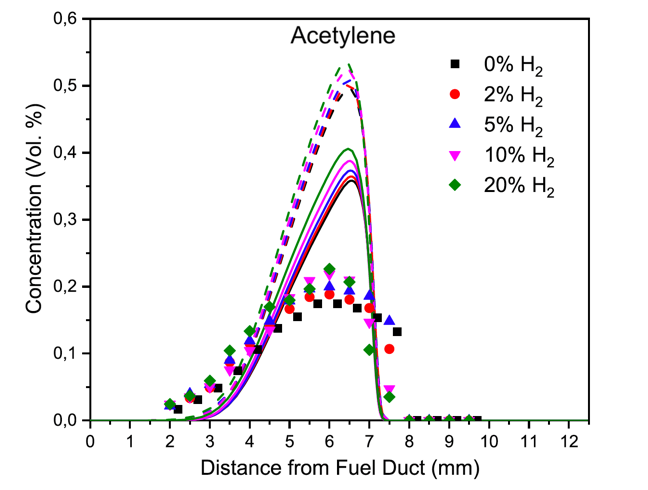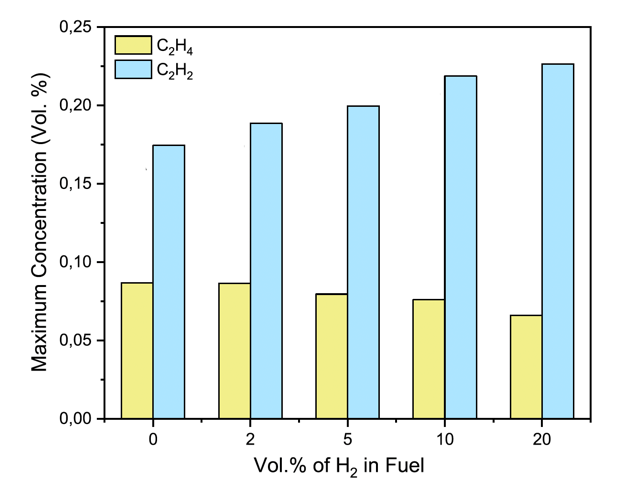Methane engines for passenger cars
Contemporary Natural Gas (NG) engines for passenger car applications are not consequently optimized for NG operation. But, due to its high knock resistance, NG offers a high efficiency potential versus gasoline already. EE-C-Methane consists mainly of very neat methane. Therefore, it offers an even higher knock resistance (higher Methane Number) than NG. The higher knock resistance can be transformed into higher efficiency by further increasing the compression ratio (CR) and the boost level of the engine. Further information on the background of the project can be found at https://www.methquest.de/ueber-methquest/methcar/.
Within the framework of the MethCar, experimental studies on the formation of particles and gaseous pollutants under realistic conditions of gas engine combustion are being investigated at EBI-VBT. The investigations focus on particles on the nanometer scale. These can be formed during inhomogeneous mixture formation with fuel-rich zones, which may occur locally in the combustion chamber. Therefore, a series of experimental investigations in different model flames are investigated within MethCar to clarify the influence of fuel composition, mixture quality and pressure conditions on the formation of particles.
In order to be able to selectively set stable flow boundary conditions and varying mixture quality, most of the experimental investigations will be carried out in a counterflow burner. For a comprehensive analysis of the formation process of soot particles and gaseous pollutants, the spatially resolved recording of several variables is required, such as flame temperature, gas composition, particle size and morphology.
  |
Figure 1. left: Measured and calculated profiles of acetylene concentration in a base flame as a function of different hydrogen concentrations. Right: Maximum concentrations of two precursor species as a function of hydrogen addition to the base flame.
Related literature:
- Experimental investigation of the effect of hydrogen addition on the sooting limit and structure of methane/air laminar counterflow diffusion flames Khare, R.; Vlavakis, P.; Langenthal, T. V.; Loukou, A.; Khosravi, M.; Kramer, U.; Trimis, D. 2022. Fuel, 324/B, Art.-Nr.: 124506. doi:10.1016/j.fuel.2022.124506

